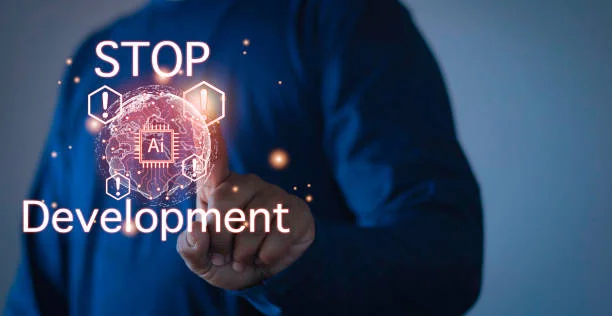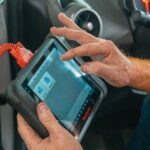The Internet of Things (IoT) has emerged as one of the most transformative technologies of the 21st century, revolutionizing how businesses operate across industries. From smart manufacturing and healthcare monitoring to agricultural automation and smart city infrastructure, IoT solutions or IoT Software Development are reshaping traditional business models and creating new opportunities for efficiency and innovation.
As organizations increasingly recognize the potential of IoT technology, the demand for specialized development services has grown exponentially. The global IoT market is projected to reach $1.39 trillion by 2026, driven by advances in cloud computing, artificial intelligence, and edge computing technologies.
The success of any IoT implementation largely depends on choosing the right development partner. Leading IoT software development companies combine deep technical expertise with industry-specific knowledge to deliver solutions that not only meet current needs but also scale for future growth. These companies understand the complexities of IoT ecosystems, from device connectivity and data management to security protocols and user interface design.
You might also like: A fresh take that complements what you just read.
What Makes a Great IoT Development Company?
Before exploring the top companies in this space, it’s important to understand the key characteristics that distinguish exceptional IoT development partners:
Technical Expertise: Proficiency in IoT protocols (MQTT, CoAP, HTTP), cloud platforms (AWS IoT, Azure IoT, Google Cloud IoT), and edge computing technologies.
Security Focus: Understanding of IoT security challenges and implementation of robust security measures throughout the development lifecycle.
Scalability Planning: Ability to design solutions that can handle growing numbers of connected devices and increasing data volumes.
Industry Knowledge: Deep understanding of specific industry requirements and regulations.
End-to-End Capabilities: Comprehensive services from hardware integration to data analytics and user interfaces.
Leading IoT Software Development Companies
1. Yalantis
Yalantis has established itself as a prominent player in the IoT development landscape, with a track record of delivering sophisticated solutions across multiple industries. The company specializes in creating comprehensive IoT ecosystems that seamlessly integrate hardware, software, and cloud infrastructure.
Core Expertise:
- Custom IoT application development
- Device connectivity and management
- Real-time data processing and analytics
- Cloud infrastructure setup and management
- Mobile and web dashboard development
Key Services:
- IoT strategy consulting
- Proof of concept development
- Full-scale IoT solution implementation
- Legacy system integration
- Ongoing maintenance and support
Yalantis stands out for its ability to handle complex, multi-component IoT projects while maintaining a focus on user experience and system reliability. Their development methodology emphasizes iterative testing and continuous improvement, ensuring solutions remain robust and scalable.
2. Cognizant
As a global technology services company, Cognizant brings enterprise-level expertise to IoT development projects. Their IoT practice focuses on helping large organizations transform their operations through connected technologies.
Specializations:
- Industrial IoT (IIoT) solutions
- Smart manufacturing systems
- Connected healthcare platforms
- Supply chain optimization
- Predictive maintenance solutions
Cognizant’s strength lies in their ability to integrate IoT solutions with existing enterprise systems, ensuring seamless data flow and minimal disruption to ongoing operations.
3. Accenture
Accenture’s IoT services combine strategic consulting with technical implementation capabilities. They focus on helping organizations identify high-impact IoT use cases and develop comprehensive implementation roadmaps.
Key Offerings:
- IoT strategy and roadmap development
- Digital twin implementations
- Edge computing solutions
- AI-powered analytics platforms
- Change management and training
Their approach emphasizes business transformation rather than just technology implementation, helping clients realize measurable ROI from their IoT investments.
4. IBM
IBM’s Watson IoT platform provides a foundation for many of their client implementations. The company leverages decades of enterprise technology experience to deliver robust, scalable IoT solutions.
Strengths:
- Enterprise-grade security and compliance
- Advanced analytics and AI integration
- Blockchain integration for supply chain transparency
- Industry-specific solution frameworks
- Global support and maintenance capabilities
IBM excels in complex, large-scale deployments where reliability and security are paramount concerns.
5. Cisco
While primarily known for networking hardware, Cisco has developed significant capabilities in IoT software development, particularly in areas related to network infrastructure and edge computing.
Focus Areas:
- Industrial networking and connectivity
- Edge computing platforms
- Network security for IoT deployments
- Asset tracking and management
- Smart building solutions
Cisco’s unique advantage lies in their deep understanding of network infrastructure requirements for IoT deployments.
Industry-Specific IoT Applications
Manufacturing and Industrial IoT
Manufacturing companies are among the earliest and most aggressive adopters of IoT technology. Smart factory implementations include:
- Predictive Maintenance: Sensors monitor equipment health to predict failures before they occur
- Quality Control: Real-time monitoring of production parameters ensures consistent quality
- Supply Chain Visibility: Track materials and products throughout the manufacturing process
- Energy Management: Optimize energy consumption across manufacturing operations
Healthcare and Medical IoT
Healthcare IoT applications are transforming patient care and operational efficiency:
- Remote Patient Monitoring: Continuous monitoring of vital signs and health metrics
- Asset Tracking: Real-time location tracking of medical equipment and supplies
- Environmental Monitoring: Ensure optimal conditions in hospitals and storage facilities
- Medication Management: Smart dispensing systems and adherence monitoring
Smart Cities and Infrastructure
Urban IoT deployments are creating more efficient and sustainable cities:
- Traffic Management: Intelligent traffic control systems reduce congestion
- Waste Management: Smart bins optimize collection routes and schedules
- Environmental Monitoring: Track air quality, noise levels, and other environmental factors
- Public Safety: Connected surveillance and emergency response systems
Agriculture and Smart Farming
Agricultural IoT solutions are increasing crop yields while reducing resource consumption:
- Precision Farming: Optimize irrigation, fertilization, and pest control
- Livestock Monitoring: Track animal health and behavior
- Supply Chain Traceability: Monitor food products from farm to table
- Equipment Management: Remote monitoring and control of farming equipment
Key Considerations When Choosing an IoT Development Partner
Technical Capabilities Assessment
When evaluating potential IoT development partners, consider their experience with:
- Connectivity Protocols: Ensure they understand various IoT communication standards
- Cloud Platforms: Experience with major cloud providers and their IoT services
- Data Analytics: Ability to process and analyze large volumes of IoT data
- Security Implementation: Track record of implementing robust security measures
- Integration Capabilities: Experience connecting IoT systems with existing business applications
Project Management and Delivery
Successful IoT projects require careful planning and execution:
- Agile Methodology: Ability to adapt to changing requirements during development
- Cross-functional Teams: Teams with diverse skills including hardware, software, and domain expertise
- Testing and Validation: Comprehensive testing procedures for IoT solutions
- Documentation and Training: Proper documentation and user training programs
- Support and Maintenance: Ongoing support capabilities after deployment
Cost and ROI Considerations
IoT projects often involve significant upfront investments, making cost management crucial:
- Total Cost of Ownership: Consider all costs including development, deployment, and ongoing operations
- Scalability Economics: Understand how costs change as the system scales
- ROI Modeling: Work with partners who can help model expected returns
- Flexible Pricing Models: Consider partners offering various pricing structures
Future Trends in IoT Development
Edge Computing Integration
The trend toward edge computing is reshaping IoT architectures. Processing data closer to devices reduces latency, improves reliability, and decreases bandwidth requirements. Leading development companies are investing heavily in edge computing capabilities.
AI and Machine Learning Integration
The integration of AI and machine learning with IoT systems is enabling more sophisticated analytics and autonomous decision-making. This trend is particularly important in applications like predictive maintenance and autonomous vehicles.
Enhanced Security Measures
As IoT deployments grow, security becomes increasingly critical. Advanced security measures including blockchain integration, advanced encryption, and zero-trust architectures are becoming standard requirements.
5G Connectivity
The rollout of 5G networks is enabling new categories of IoT applications that require high bandwidth and low latency. Development companies are preparing for this transition by updating their technical capabilities.
Conclusion
The IoT software development landscape continues to evolve rapidly, driven by technological advances and increasing business adoption. Success in IoT implementation depends heavily on choosing the right development partner who combines technical expertise with industry knowledge and a proven track record of successful deployments.
Organizations considering IoT initiatives should focus on partners who demonstrate not just technical capabilities, but also a deep understanding of business requirements and the ability to deliver scalable, secure solutions. The companies highlighted in this overview represent different approaches and strengths in the IoT development space, each offering unique value propositions for different types of projects and organizational needs.
As IoT technology continues to mature, the most successful implementations will be those that focus on solving real business problems rather than simply implementing the latest technology. The best development partners understand this principle and work closely with clients to ensure IoT investments deliver measurable business value.
Whether you’re planning your first IoT project or looking to expand existing implementations, carefully evaluating potential development partners against your specific requirements and long-term goals will be crucial for success in this transformative technology landscape.
Curious hearts and bright minds—follow the path to more wisdom on Management Works Media.






